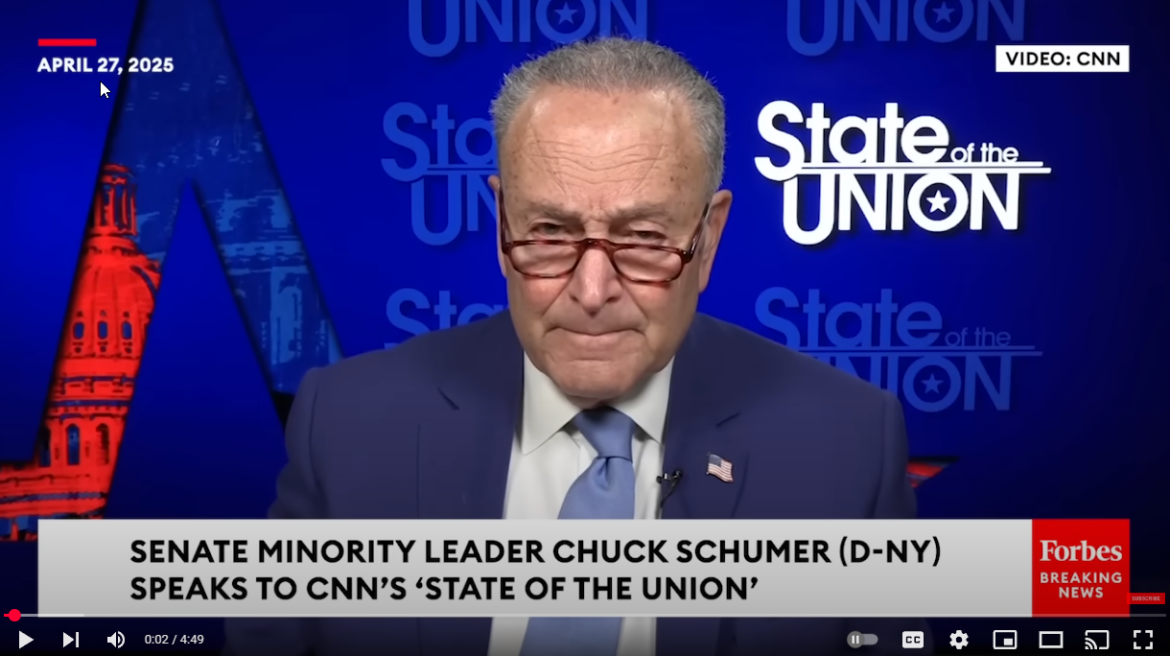Senate Minority Leader Chuck Schumer (D-NY) is facing renewed pressure over the question of impeachment after being asked directly on CNN’s “State of the Union” whether he believes President Trump should be impeached. During the high-profile interview, Schumer carefully avoided endorsing immediate impeachment proceedings, signaling a cautious Democratic approach amid ongoing political and legal battles involving the former and possibly future president.
When host Dana Bash asked Schumer point blank if Trump should be impeached, the Democratic leader declined to give a definitive yes or no. Instead, Schumer emphasized that legal processes must be allowed to unfold and that Democrats must focus on protecting democratic institutions and ensuring accountability through the courts. He underscored the importance of not pre-judging outcomes while various investigations and legal proceedings continue to work through the system.
The question arises at a time of mounting legal jeopardy for Trump, who faces numerous federal and state-level investigations related to his conduct during his presidency, his efforts to overturn the 2020 election, and allegations surrounding classified documents. While Trump continues to deny all wrongdoing and decries the investigations as politically motivated “witch hunts,” critics argue that the mounting legal cases provide substantial grounds for further political action, including impeachment.
Back history reveals that Trump has already been impeached twice — first in 2019 over his dealings with Ukraine and again in 2021 following the January 6th Capitol riot. He was acquitted both times by the Senate, largely along party lines. No U.S. president has ever been impeached and convicted, and only a handful have been impeached at all. Impeaching Trump again would represent a historic and highly polarizing move, especially given that he is actively campaigning for the 2024 presidential election.
Schumer’s refusal to directly call for impeachment reflects broader Democratic strategic calculations. Party leaders appear wary of fueling Republican accusations of political persecution, especially at a time when Trump maintains a strong grip on the GOP base. Many Democratic strategists believe that allowing the legal system to proceed without overt political interference strengthens the credibility of any future actions against Trump.
Still, Schumer’s remarks have drawn criticism from progressive activists who argue that failure to act against Trump enables him to continue undermining democratic norms. Some lawmakers in the Democratic caucus have privately expressed frustration, believing that stronger public calls for impeachment or disqualification under the 14th Amendment are warranted given Trump’s ongoing legal and political activities.
As the legal cases against Trump continue to move forward, the debate over whether political leaders like Schumer should push harder for impeachment or disqualification is likely to intensify, especially as the 2024 election season accelerates.



